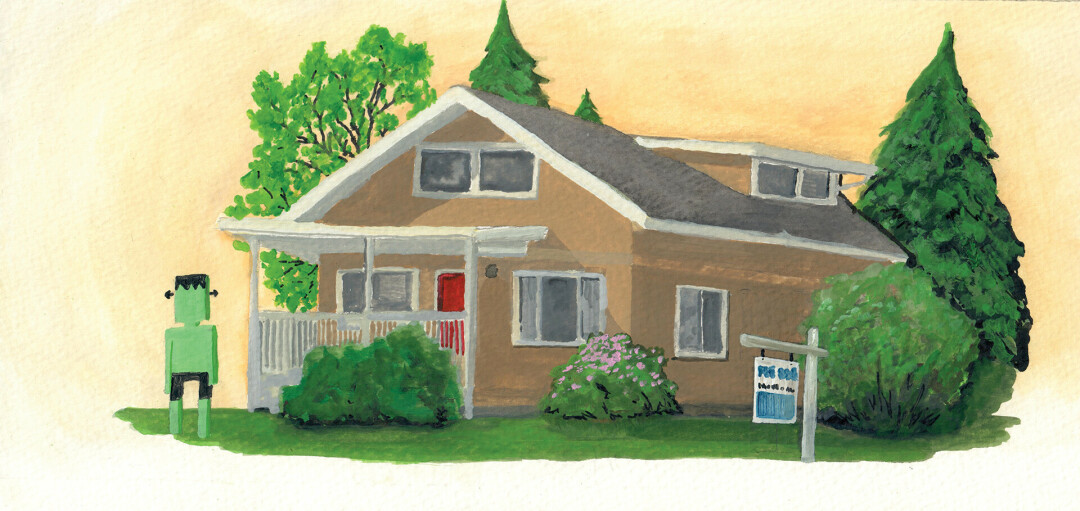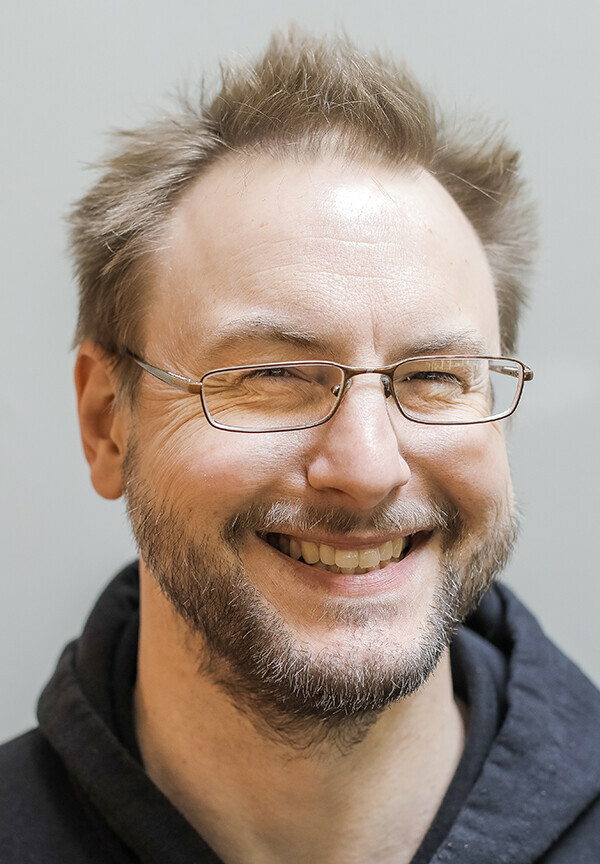COLUMN: A Pile of Memories at Your Feet
memories can be our greatest gifts and our biggest losses
Andrew Patrie, illustrated by Caitlin Plaisance |
 With my mother gone and my father in memory care, it’s time to sell my parents’ home. On the eve of the sale, I don’t expect to cry. And I don’t. For a while. Not when standing in what was once my childhood bedroom. Not when looking out the kitchen window where my mother called to me day after day in the hot summers. Not until I reach the basement, the places my father touched: the fireplace he built up brick by jagged brick, the solitary workshop where, for five decades, he often toiled.
With my mother gone and my father in memory care, it’s time to sell my parents’ home. On the eve of the sale, I don’t expect to cry. And I don’t. For a while. Not when standing in what was once my childhood bedroom. Not when looking out the kitchen window where my mother called to me day after day in the hot summers. Not until I reach the basement, the places my father touched: the fireplace he built up brick by jagged brick, the solitary workshop where, for five decades, he often toiled.
Standing in that workshop, the room is eerily bare. The estate sale people are gone. The floors swept. The cabinet doors back on their hinges. I finally break. I rarely entered this place as a kid, and I’ve never been particularly handy. So strange to be overcome with emotion here.
My father helped me build my own Frankenstein’s monster on this very floor. Not with salvaged body parts but scraps of lumber laying around: two by four legs and a square of plywood for the head. The room lacked the ambiance of a lab: no bell jars, no bubbling beakers, no Jacob’s Ladder ascending sparks to the heavens. Instead, hammers pounded, table saws shrieked, and Norman Greenbaum’s “Spirit in the Sky” crackled through the radio. My father pried open a paint can from a never-ending shelf of paint cans. I dipped a fat brush in it and applied a sickly green to the face of my creation. We let it dry and then set it upright. It was taller than I was. We’d eventually stick the thing in our lawn like some suburban scarecrow meant to deflect the neighbors who, rising dripping from their above-ground pool, would come to retrieve wayward beach balls from our yard.
I was proud of our work. My father said a job was never truly done until there was a pile of sawdust at your feet. Years later I’d appropriate his analogy for my writing students: “Kill your darlings,” I’d say. “A piece is never truly finished until there’s a pile of words at your feet.” I think of my father, wheelchair-bound, living in another kind of home now, his brain gradually deleting itself, how a life isn’t truly done until there’s a pile of memories at your feet.
”
But like Frankenstein’s monster, assembled from the parts of various grave-robbed bodies, so now am I assembled anew from his various memories.

andy patrie
author
I visit him shortly after Father’s Day. We sit in the commons at one of several rectangular tables. Residents are milling about. Staff are prepping dinner in the kitchen. He looks comfortable in his too large t-shirt and sweatpants. He leans forward in his wheelchair and points to three wooden frames on the wall: whiteboards with the day’s menu for breakfast, lunch, and dinner. “You made those,” he says.
I know I’m supposed to play along with the fantasy, but my heart isn’t in it today. “I don’t think so, Dad.”
“No,” he insists, “you made those, and I helped you.”
I wonder if he’s remembering helping me build the Frankenstein monster all those years ago. Buoyed by this hopeful thought, I open my mouth to speak.
My father cuts me off. “I was only this high,” he says, extending his hand away from his body and lowering it to the height of a small child. “And you helped me put them together.”
I sink into my chair. It’s a memory, I’m sure, of his older brother, Tom, assisting him with some project when they were young in that faraway time dementia patients seem so effortlessly able to access. This is soon confirmed when a wandering resident pauses by my father’s wheelchair and asks him, “And who is this person sitting with you?”
“This is my brother,” he says.
I wave at her, and she smiles before shuffling on.
I look at his thinning grey hair combed back over his head and think somewhere in there must be that memory of the two of us sharing space in his workshop engaged in an activity which brought both of us joy albeit for different reasons. Somewhere in there must still be a memory of me as his son. But like Frankenstein’s monster, assembled from the parts of various grave-robbed bodies, so now am I assembled anew from his various memories. Dementia, the maddest of scientists. And what choice did the creature have, what choice do I have, but to embody this new identity, this new role? My father, my brother.




















